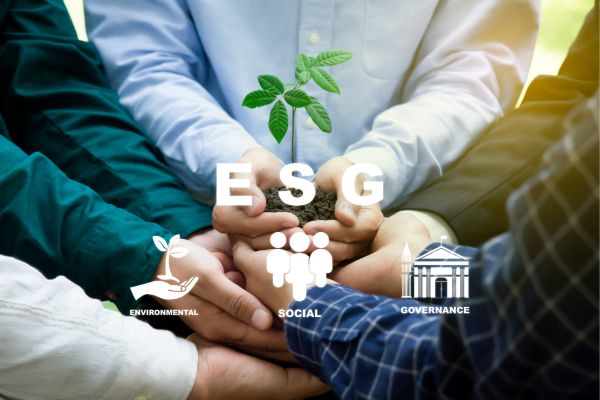
Sustainability, ESG and safer gambling
Guest article provided by IAGR partner, Greo Evidence Insights.
As the gambling landscape continues to evolve and diversify, Environmental, Social, and Governance (ESG) provides an important framework for sector sustainability. By considering how our work impacts others and the potential for positive change, ESG frameworks offer regulators and other gambling harm reduction stakeholders an expanded lens that highlights some of the factors that support socially responsible practices and drive sustainability.
ESG frameworks and metrics are used to measure an organization’s performance in three key areas: its impact on the environment (‘E’), its development and management of stakeholder relationships and impact on people (‘S’), and its overall governance practices (‘G’).
While approaches to ESG are still evolving, a few examples of how ESG could apply to the gambling sector include:
- Environment: designing energy-efficient land-based venues, green web hosting, sustainable resource management, and minimizing electronic waste.
- Social: Impact assessments, prevention and treatment programs for gambling-related harms, community (re)investment programs, age verification, measuring gambling-related harms at a population level, player vulnerability assessments, and evaluation of the effectiveness of safer gambling messaging on player knowledge and behaviour.
- Governance: Preventing conflicts of interest, data privacy and protection, transparent compliance and accountability mechanisms, ethical marketing, anti-corruption, and attaching ESG metrics to executive compensation.
ESG standards and reporting frameworks provide a starting point for organizations to determine the issues that are most important to their unique context. Organizations might consider issues from two perspectives: (1) the positive and negative impacts the organization can have on society and (2) the risks and opportunities emerging ESG issues may have on the way the organization operates and its success.
Recently published resources
Below is a selection of resources that may help to inform regulatory approaches to ESG and sustainability in gambling:
- Beating the odds | The imperative of ESG for the future of gambling
- Developing an integrated resort’s (IR) environmental, social, and corporate governance (ESG) measurement scale
- ESG Outcasts: Study of the ESG Performance of “Sin Stocks”
- The iGaming industry must improve ESG to attract capital and repair its reputation
- Strategies for Social and Environmental Disclosure: The Case of Multinational Gambling Companies (paywall)
- Global Reporting Initiative Standards
Evidence-informed action
Below are evidence-aligned examples of action taken in jurisdictions internationally.
United States
In 2022, the American Gaming Association conducted an industry-wide assessment of its member organizations’ strategies and initiatives related to ESG. The report found that most members allocated resources to ESG-defined initiatives in 2021, and nearly half of its members reported they were developing an ESG strategy.
Malta
In 2023, the Malta Gaming Authority established the ESG Code of Good Practice for remote gaming companies, inviting operators to submit their ESG disclosures voluntarily. The ESG code covers 19 topics organized into Environmental, Social, and Governance categories and includes two reporting tiers: Tier 1 for basic ESG standards and Tier 2 for a more aspirational level. This industry-specific framework was designed to enhance transparency, encourage ESG reporting, and facilitate benchmarking to meet the changing expectations for how companies operate in the sector.
Norway and Finland
Norwegian state-owned monopoly Norsk Tipping and Finnish state-owned monopoly Veikkaus both publish annual reports in accordance with Global Reporting Initiative (GRI) Standards. The GRI Standards enable organizations to understand and report on their impacts on the economy, environment, and people in a comparable and credible way, increasing transparency on their contribution to sustainable development.
- Veikkaus 2023 Annual and Sustainability Report (page 54)
- Norsk Tipping’s annual and sustainability report 2022 (in Norwegian)





